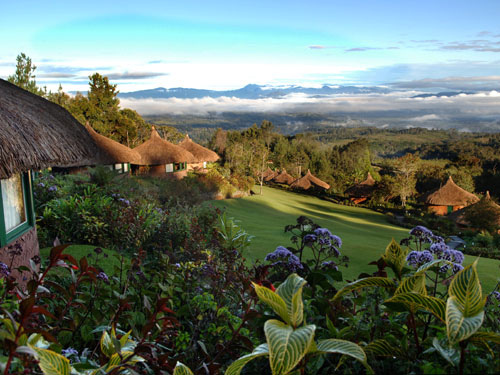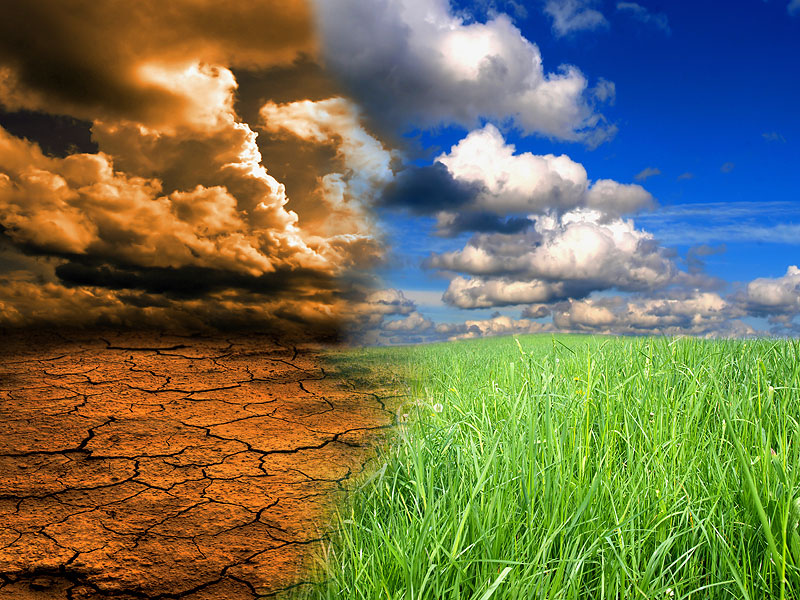Sept 2016 - PNG Highlands as our #1 pick, Climate Change and Coffee, Golden Latte Tumeric Blend
Date Posted:3 September 2016
This month we hail the return of our much-beloved PNG Highlands - and this one is going straight to the Trophy Cabinet. A finals-season coffee in top form, super-fresh and just arrived from harvest 3 weeks ago.
We have been waiting on our new PNG Highlands coffee for almost 6 months and it's everything we wanted plus a whole lot more - a game changing coffee.
Anyone calling or emailing asking for a recommendation will get PNG Highlands as my #1 pick - rich, complex, balanced, clean and sweet - a perfect coffee in every regard and ideally suited to the Australian coffee palate.
We also take a look at the hot topic of Climate Change and the future of coffee and offer up the latest in new hot beverages the Golden Latte Tumeric Blend.

PNG Highlands - a phoenix rising
In an article we published on Papua New Guinea (PNG) coffees back in March 2015, I put forward some strong views that in our opinion the best days of coffees from our nearest neighbour were unfortunately behind us. It was with a sense of frustration and a degree of emotion that we believed the telling signs of a once mighty PNG coffee industry were in a state of turmoil and decline.
PNG is blessed with some of the best micro-climate and coffee growing conditions in the world - it's proximity to the equator, high altitude and rich volcanic soil produce amazing coffees that coffee industry experts around the world often claim are some of the finest available. PNG is also a land of rich natural resources - oil, gold, copper, gas, timber, cocoa and coconut that have at times suffered from tremendous lost opportunities or unfairly exploited in terms of the broader economic benefit for the country and it's people.
The social structure of PNG is complex and challenging to navigate. Hundreds of different dialects are spoken and the population is dispersed throughout the country in small communities of people referred to as "wantok" or "speaks the same language". This highly distributed peer-type social system presents difficulties in enabling the traditional organisational and hierarchical controls required to manage trade and industry throughout the country.
Law and order in PNG has long been and still remains a key issue as theft by hijacking bandits often occurs when goods are transported from the point of production to the exporting port. These types of incidents mean supply from PNG is difficult due to poor roads that can be washed out from heavy rains or haphazard from thefts or incredibly bureaucratic delays - export Companies risk becoming bankrupt very quickly.
I had seen some of these challenges personally back in 1992 when working on projects in Lae and Port Moresby. All communications systems (phone and data networks) were shutdown by villagers in a remote, distant community - they had cut the cables in a repeater station on top of a rugged, inaccessible mountain. The dispute was about the right to use the land and the amount of Kina being paid in return for such rights. It was an incident that flared up often without warning and something I had learned was a regular fixture of modern life in PNG.
In late 2012, I decided to pull back from our traditional long positions in PNG coffees. The personal and emotional attachment developed over 30+ years had been worn down from exasperating attempts to source consistently great coffees. The importing arrangements in Australia were in disarray and it was not unusual for each new ton of coffee to be remarkably different from the previous.
We knew great coffee was still being grown and harvested in PNG, but concluded that buyers in other countries were getting offered first pick of the best lots - sold to much high-paying Japanese, US and German customers. Our "long" strategies were instead switched to Colombia and Guatemala and PNG reverted to "short/tactical" positions.
Despite this ever present backdrop of turmoil and chaos, PNG coffees possess a Phoenix-like ability to bounce back to even greater heights. The varietals grown in PNG are direct descendants from the famous Jamaica Blue Mountain (JBM) - one of the world's most desirable and expensive coffees. Combined with perfect micro-climate conditions and the richest, fertile soils, when the stars align there can be no mistaking the sheer undeniable brilliance of PNG coffees.
In my long history of drinking great PNG coffees, to this day I still struggle to articulate the fundamental attributes of a quality PNG coffee....other than a simple descriptor of "really rich". However, the term "rich" simply does not do fair justice to great PNG coffees. The depth of PNG richness can be astonishing.........starting out velvety-smooth and creamy, building in structure, depth and complexity until the full body saturates into a long, clean and sweet chocolate finish. It's the roundness and symmetry that PNG coffee lovers find intoxicating - it's not one thing........it's many.
We have said it many times before - the Australian coffee palate was raised on PNG coffees during the 1970's to 1990's - a taste experience etched into our memories.
The good news is that through our trusted raw coffee broker connections, we now have good access to ongoing supply from PNG's best quality exporter. Grown in the Simbu province of the PNG Highlands, this coffee is specialty grade small landholder lots produced at the highest altitude of any coffees grown in PNG - 1750 metres above sea level. The facilities at Simbu are the most modern and advanced in the country making these coffees highly sought after by International buyers of premium grades. Without doubt, this is one of the PNG's finest coffee and in high demand around the world.
Since receiving our first shipments in mid August, the results have well exceeded our expectations. So impressed have we been with these new PNG coffees, we have integrated these fine PNG coffees into some of our blends and we will run long on this coffee.
This premium product was developed for the worldwide specialty market and we are pleased to offer such a superb coffee as our single origin offer for PNG Highlands.
Whilst there are many farms and Co-Ops in PNG, the majority of coffee produced is taken up by global companies such as Ecom and VolCafe. The great thing about our PNG Highlands coffee is that profits from this Producing Co-Op are distributed directly to the local Simbu Province communities - not transferred back to Commodities Companies in Europe.
We truly believe this PNG coffee is a game changer in our local market.
The balance and finish are magnificent and fit perfectly into the classic taste profile preferred by Australian coffee drinkers - it's bang on target.
- Rich flavours showing good complexity.
- Hazelnut and chocolate on aroma,
- Hints of spice with balanced acidity,
- Lingering chocolate aftertaste.
- Lovely full body.
Grab it here - PNG Highland coffee beans

securing a future for coffee
Some of you may have read the headlines from a recent report by The Climate Institute commissioned by FAIRTRADE Australia & New Zealand. Claims in the report have generated interesting commentary and appeared in both industry and mainstream media with key messages appearing to reinforce the negative impact of climate change on the future security of coffee as an essential food crop.
In their report, it states that 2.25 billion cups of coffee are consumed daily with an increasing annual consumption rate of around 5% worldwide. There are fears that raising temperatures and rainfall will increase the risk of plant diseases and pests that negatively impact both the volume of crop yields and also degrade cup quality.
Some of what is reported has occurred already - we have seen it in Colombia back in 2010/2011 and more recently in Central America in 2014/2015. These experiences demonstrated first-hand the devastating effects of coffee leaf rust epidemic (Roya). Roya has been directly linked to global climate change and up to 40% of crop volumes have been destroyed in some origins.
Colombia managed to bounce back, but we fear some of the Central American countries such as El Salvador will suffer long-term structural industry harm. These are serious widespread events that wipe out entire coffee farms and in severe cases whole communities that rely upon the ecosystem of coffee farming as a means for cash crops. In some cases, there are limited mitigation strategies a farmer can implement to protect against such outbreaks as the on-set of Roya can be frighteningly rapid.
It's predicted that almost half the land currently used for coffee farming will not be suitable in just a few decades - dramatically pushing up the costs of production and causing severe financial hardship on the 25 million coffee farms around the world. Demand will continue to increase and result in dramatically outstrip supply leading to price bubbles becoming a more common factor in trading coffee as a commodity.
The challenge of in all of this rhetoric is how both companies and individuals can act responsibly on climate change, or whether in fact we can act in some way positive. The climate debate will continue in the political, commercial and social realms - it's not a situation confined to risks associated with just the coffee industry but a threat that affects all agricultural produce as well as our own individual living conditions.
It was once possible to buy Ethiopian Harrar with amazing blueberry notes and today the very best coffees from that region are a stark contrast to crops from a decade ago. Sure, there may be a degree of local economic decline and a lack of coffee industry focus or incentive, but the proof is in the pudding as many of the delicate heirloom varietals are basically unable to survive extreme weather patterns, aggressive diseases or pests, relegating these wild coffees to extinction.
The solution may be found in genetic engineering - developing crops that are resistant to Roya and pests, grown at lower altitudes or enabling coffee to flourish in areas away from the equator. These new varietals will need to be capable of withstanding excessive rains, frosts and droughts but more importantly the new breeds of coffee varietals need to perform where it matters most - in cup quality and performance. New varietals are a long and slow program versus the dark clouds of climate that change seem to move in comparably faster cycles.
In my mind, the tipping point for coffee pricing had already occurred a few years ago........we are unlikely to ever see a repeat of the 2013 lows as the demand for quality coffees already exceeds supply today.
Peering into the crystal ball, we think that in the absence of new breakthrough varietal coffees that are robust, capable of surviving the effects of climate change and produce equivalent cup quality, there is a case for coffee prices to rise on average each year between 5% - 10% based on demand metrics burdening supply. We also believe there will be periodic event-based bubbles, maybe every 3 years, of swings up to 20% that will be challenging to hedge or smooth over a longer term.
How the game plays out in the retail segment will be interesting as saturated and competitive markets cause further margin pressures on suppliers unable or unwilling to raise prices in accordance with variable input costs.

Golden Latte - especially for Soy Milk drinkers
Soy drinkers are often forgotten in the beverage world.
Whilst there have been some wonderfully innovative alternatives to Soy, such as Almond Milk, the Soy brigade deserves something delicious.
Golden Latte, the Tumeric-based sensation has been setting the market alight. Not only is the product delicious, it's also good for you.
Gluten free with no added dairy, it's blended with organic panella sugar.
Try it here - We have unfortunately stopped supplying herbal teas and only stock traditional loose leaf tea in our store currently.



